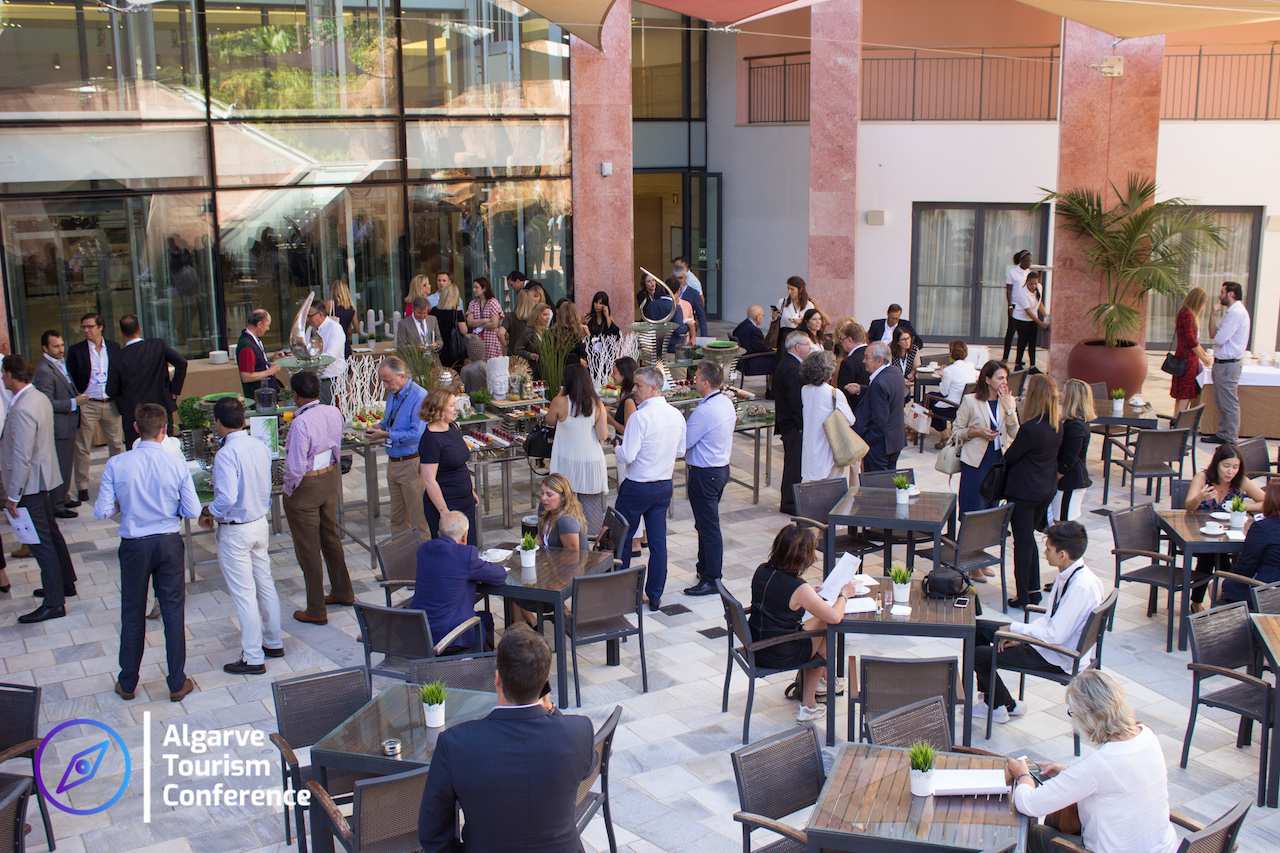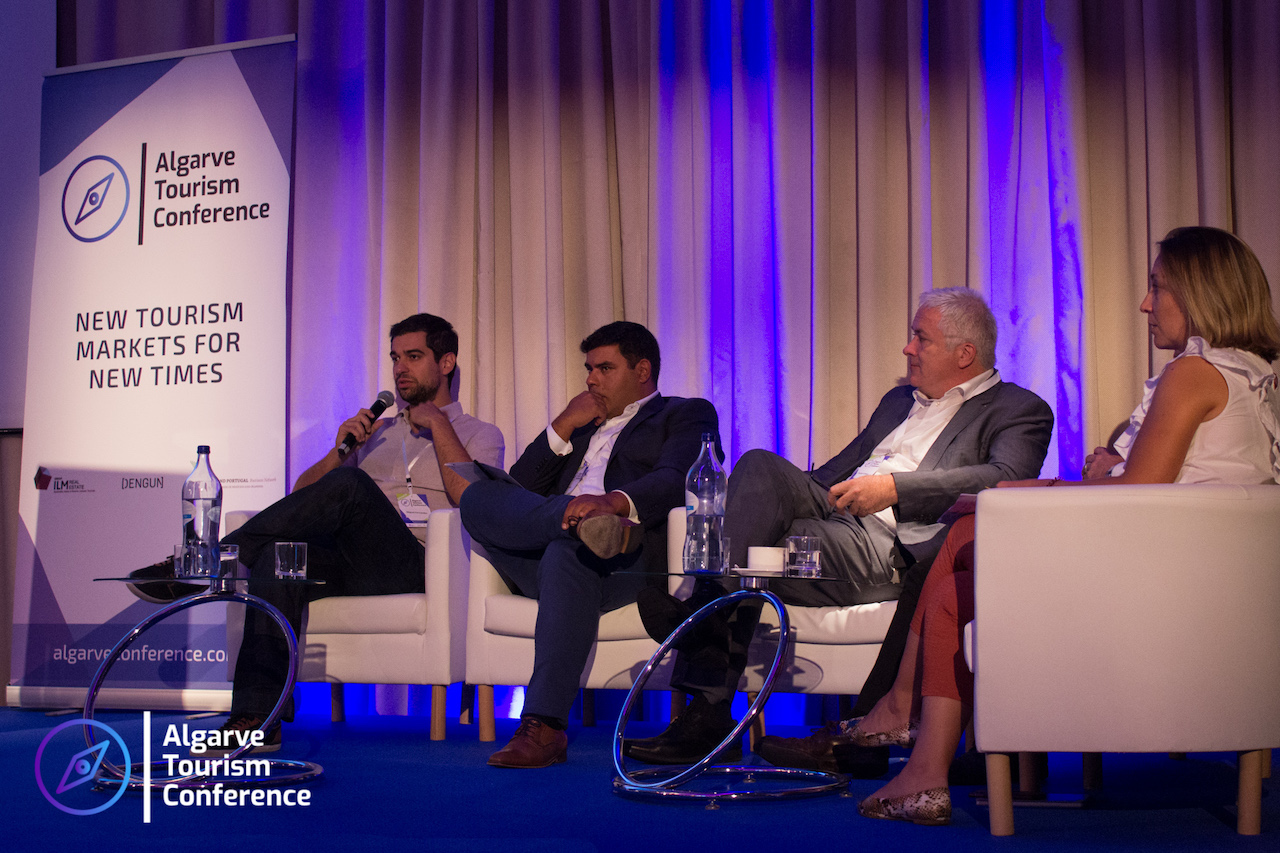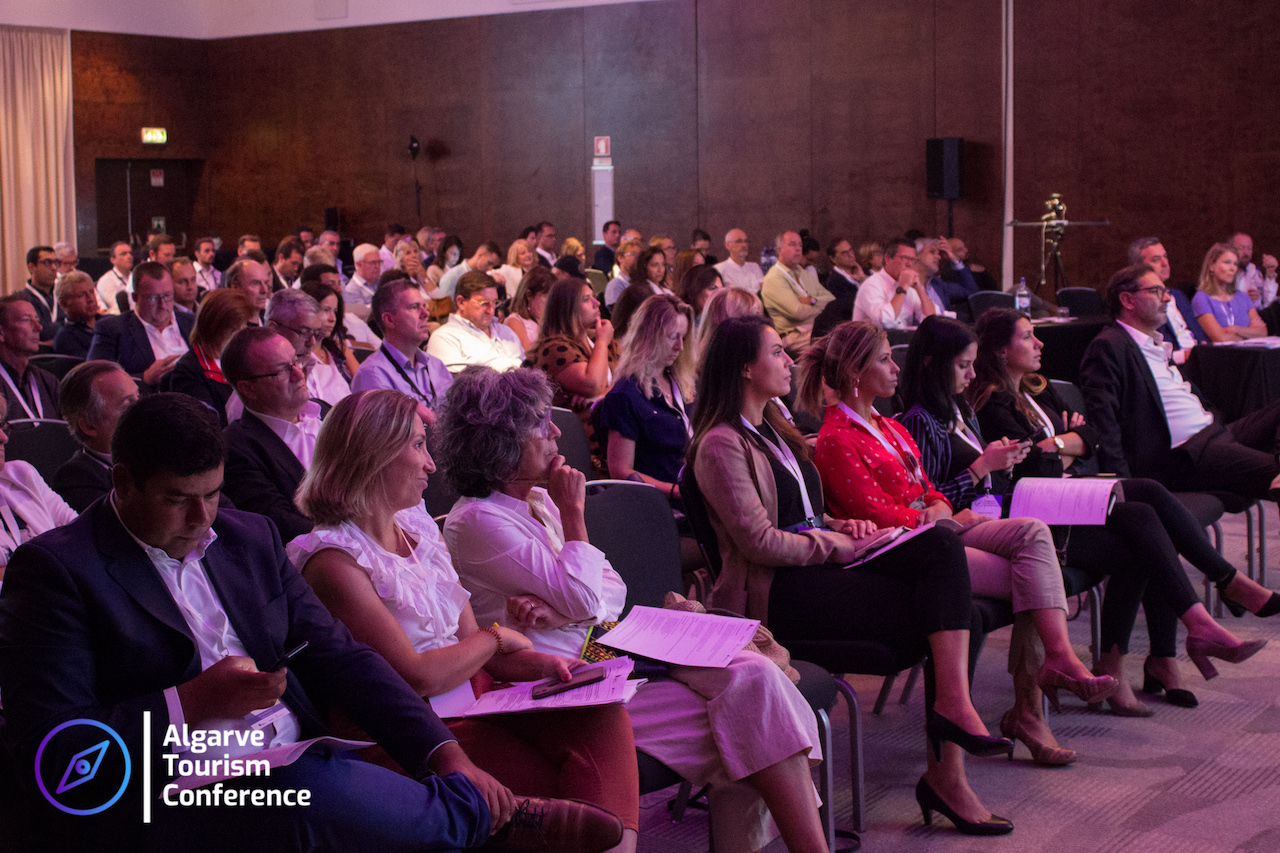Algarve can deliver blueprint to tackle future global crises, tourism conference hears

The Algarve can use its natural assets to position itself as a ‘model in sustainable development’ providing a blueprint to tackle future global crises, a conference heard.
Portugal’s southern region has the perfect environment to test solutions for major challenges ahead – including energy use, water shortages, greenhouse gas emissions, elderly care, wellbeing and the destruction of natural habitats, ecosystems and wildlife – according to experts at the 2019 Algarve Tourism Conference.
Meanwhile its growing tourism, technology, healthcare and renewable energy sectors can underpin the movement and help redefine the territory as the ‘California of Europe’.
The event at the Hilton Vilamoura was built around a theme of ‘health and wellness’ travel. Presentations and debate from more than 35 expert speakers to 200 delegates led to a deeper analysis of the Algarve’s strategy and the development of a new ambitious, collaborative approach involving the public and private sector.

Co-organiser Andrew Coutts said the region is set to capitalise on the rapidly expanding wellness tourism market – expected to surpass €900billion by 2022. More can be done to build on existing world-class facilities and assets so the location can reinvent its global brand.
“This was a thrilling edition of the Algarve Tourism Conference. A huge amount of knowledge and expertise was shared,” he said. “The conference, which we are so proud to present, is now firmly established as one of the country’s leading annual tourism events. It was particularly heartening to unite public sector entities with major private sector operators and create an opportunity to connect. It remains abundantly clear that the Algarve still has a great deal of untapped potential, offering so many unique qualities from the gastronomy, culture and nature to perennially warm weather and world-class beaches. The Algarve is recognised for its peace, tranquillity and safety, but less well known is that there is a vibrant business scene being built around the pillars of healthcare, wellbeing, senior living, tourism, technology and renewable energy. It’s a very strong mix which lends itself to the creation of a true circular economy aimed at eliminating waste and the continual use of resources.
“While the conference was hooked to wellness travel, we entered new territory. We now need to look way beyond these shores, as Portugal always has, and learn from other world-class regions with similar qualities. There is no reason why the Algarve cannot become a pioneer in sustainable development with the right private sector backing and political will and position itself in a serious sense as the California of Europe.”
The event was delivered by ILM Real Estate Group in association with the Ireland Portugal Business Network (IPBN) and Faro’s Dengun Digital Agency. High-profile participants included HPA Saude Groupo, Longevity, Vale do Lobo, ASPA International, Promatura, GSI Health & Wellness Exchange, Revive Clinic Algarve and Pine Cliffs Resort.
Public sector bosses including the Algarve Region Tourism Board (RTA) President Joao Fernandes and Algarve Regional Coordination and Development Commission (CCDR) President Francisco Serra, also took to the stage. Mr Serra said a huge amount of work and initiatives are underway across the Algarve and while the region is ripe for development, he urged investors to present proposals fit for an eco-conscious modern age.
Co-organiser Aoife Healy, chair of the Ireland Portugal Business Network (IPBN) and founder of Pathway Consulting said a clear and progressive strategy will stimulate greater inward investment and international trade.
“The IPBN saw great value in jointly organising the 2019 Algarve Tourism Conference,” she said. “As a group we are geared towards driving trade and investment between Portugal and Ireland. There are many similarities between our nations and there is much we can learn from each other across key sectors including tourism, healthcare, technology, renewable energy and agriculture.”
There was a strong Irish presence on the day, both on the stage and within the audience. “This shows the appetite for international collaboration is strong,” she added. “The IPBN believes there are serious investment, development and growth potential for Irish companies in the Portuguese market, particularly as Irish companies look further afield for new opportunities in the wake of the uncertainty created by Brexit. Equally, we are keen to connect more Portuguese businesses to Ireland where there is a wealth of opportunities to provide talent and knowledge skills to Irish firms. The Algarve committee of IPBN is leading the way for the business community in Southern Portugal to connect with each other through innovative events and activities and is committed to helping those entering the market find their feet.”

The IPBN is supported in its activities by the Department of Foreign Affairs of Ireland and is also recognised for its role in promoting Portuguese interests by AICEP, the Portuguese investment and export Agency.
The ‘Senior Living’ potential in Portugal attracted international interest to the event with the attendance of ProMatura Founder and CEO, Dr Margaret Wylde from the USA. ProMatura is the World’s leading data-driven advisory business in age-qualified housing, since 1984. Supported by Peter Robinson, ProMatura’s London based European partner, Dr Wylde shared her thoughts and views on how ‘senior’ markets have developed in the 11 countries ProMatura operate within. Dr Wylde concluded with an offer to help underwrite new market data to support investors interested in entering or growing their presence in the Portuguese Senior Living sector.
Co-organiser Jorge Cabaco, partner at Dengun, said discussions are also now underway to create an ‘Algarve Taskforce’ involving key public and private sector partners.
“While the inspiration for the conference centred around the ‘wellness tourism’ industry, the full day of discussion ultimately covered much more ground. We drilled down into detail, but also considered the global position. In that context we began to see a broader regional strategy taking shape. It is clear the Algarve has world-class features and facilities but we also need to continue to strengthen them in certain strategic areas such as healthcare, wellness, leisure and sustainability. As a region we must focus on working together across public and private sectors to build a stronger brand. We want to attract developers, financiers and operators who are sympathetic to our ideals and can help the Algarve develop a global model for sustainability.”







